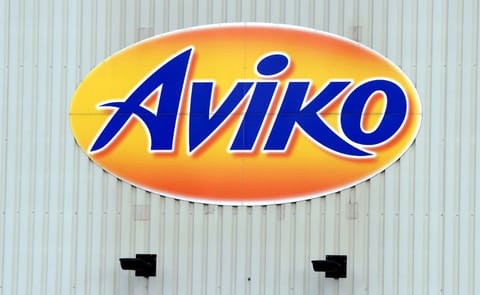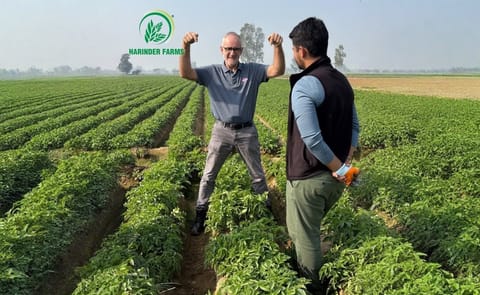Researchers Yihe Sui and Dr Richard Muhlack, pictured at The University of Adelaide’s Waite Campus, are working with Potatoes South Australia to develop a high-end vodka using waste potato skins.(Courtesy: Bianca de Marchi / Aidelaide now)
Potatoes South Australia to develop vodka from waste potato peel

In an effort to combat food waste, Potatoes South Australia has teamed up with the University of Adelaide and Adelaide Hills Distillery to make vodka from potato skins.
Robbie Davis, chief executive officer of Potatoes SA, said at a national level, food loss in the agricultural industry — pre farm gate — was $3 billion annually.
Robbie Davis, chief executive officer of Potatoes SA:
“But the horticulture component of that is $1.8 billion dollars annually, and potatoes are the biggest contributor.”
“There’s a growing moral responsibility to address the food loss and waste we have here.”
Potatoes South Australia received $30,000 for the project from the State Government through its Small Advanced Food Manufacturing Grants Program.
It was one of six local food and beverage businesses to receive grant money, with others including Lobethal Bierhaus, for the development of a gluten-free beer, and Woodside Cheese Wrights, for a luxury series of native Australian-inspired cheese.
Ms Davis said although whole potatoes were already used to make vodka, they hoped to determine if a premium SA spirit could be made using only waste potato peel. Robbie Davis:
“Having gone to lots of processing plants — what is happening to the skins? Why shouldn’t we try and use them for something?”
“The potential is just phenomenal. We want to do a comparison between different varieties of potatoes and their skins, and we will also do a comparison with whole potatoes, just to see if there is actually a real difference and whether this could work.”
University of Adelaide lecturer in fermentation and process engineering Richard Muhlack said they believed using potato peel waste to develop this type of product was a relatively new concept.
Dr Muhlack is working on the project with a team of four staff, including associate professor in wine science David Jeffery and researcher Yihe Sui.
Richard Muhlack:
“There have been other studies internationally that have been looking at using waste materials like this for fermentations to produce bioethanol for automotive fuel, but there hasn’t been a great deal of work that has been done in terms of research to take that type of waste and turn it into a high quality beverage spirit.”
If successful, he said they could be undertaking large-scale batch trials as early as December.










